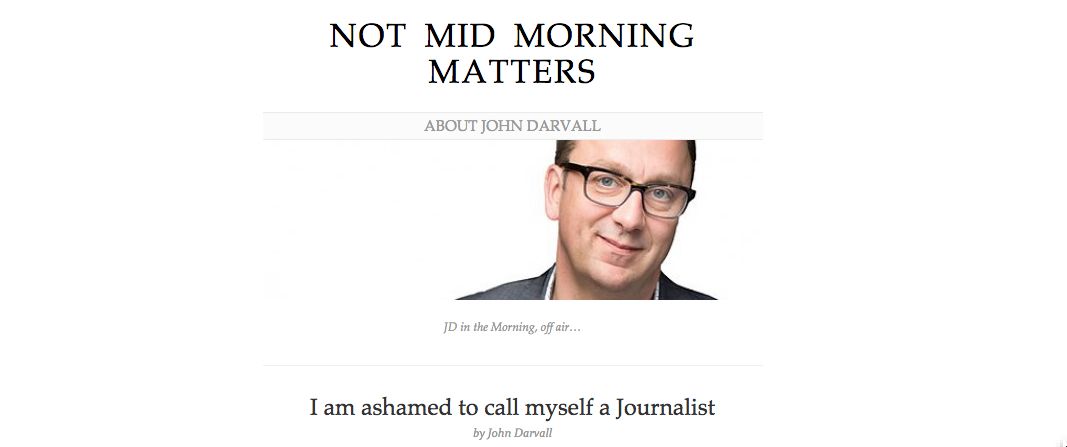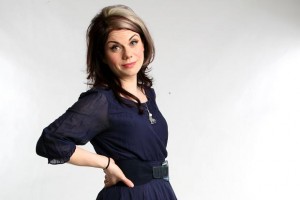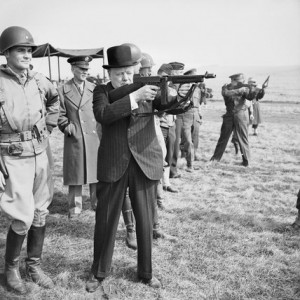Fleet Street used to be called the Street of Shame, presumably because a lot of stories were written and/or made-up when the writers were drunk a spokesman said, which used to be an automatic flag for “I totally made that up,” as everyone always knew.
For me, I lost trust in what I hate to call MSM – Mainstream Media – last Bonfire Night. I know that sounds a bit like The Night I Found Out About Santa. But it was. There was a huge demonstration in Westminster, outside the Houses of Parliamment. It was a wholly peaceful demo. But while Twitter and Facebook knew about it from people who were there, it was totally invisible to the BBC. So much so that for over four hours there wasn’t a single mention of it on any BBC website. There are obvious news priorities. There’s a finite amount of print space or website or attention span and an almost infinite amount of news. But it seemed distinctly odd that the BBC had the time and space to drear on about the traditional Bonfire in Lewes but no space at all to even mention 5,000 people outside Parliament. And then Russel Brand turned up.
I don’t like Russel Brand. I confuse him with Russel Grant. I think he has an extremely silly voice. I’m sure neither of those things bother him in the slightest. But what bothered me was the BBC’s capacity to ignore something that demonstrably was important, the Million Mask March, something that was happening in major cities all over the world, and try to divert attention from it, deliberately.
Then today I read about a journalist saying that he was ashamed to be a journalist. You can read the original article here. I thought it was going to be atonement for things like that. A cry for forgiveness, from a profession that decided that it was ok to write down that the Prime Minister threatened BBC journalists in public that if they didn’t toe the line he’d shut the BBC, but it was only ok to write about it after the election, in case it annoyed the Prime Minister. Or maybe, in case his behaviour was so outrageous that he would have lost the election if people knew that the public service broadcaster had been treated like this.
But I was wrong. John Darvall was outraged because other journalists told the truth. Or if they didn’t he doesn’t say what it was they made-up. His daughter was killed in a car crash. He made up a tribute to her, as anyone might, then attributed it to her mother. Which was not true. She might have thought those things about her daughter. She probably did. But she didn’t say them. John Darvall did. Then he pretended someone else did and wanted other journalists to repeat this fiction. His daughter had lived with her mother and step-father since she was three. His daughter and her mother and John Darvall and the step-father didn’t use that word, but that was the fact of it. Cosy sophistry of the order of “I am Polly and Oliver’s father, Simon is their dad” may be fine around the kitchen table and doubtless it was, but it isn’t all that clear when you’re trying to tie things up in 150 words in the Western Evening Press or wherever.
That may well be “always the language we use,” but it isn’t strictly true. Whoever Simon is, he was the poor girl’s stepfather. He and she may not have thought of him as such, nor used the word, but that is what he was. Language really is vital if as the 1,000 words of self-indulgence claims, “we are to understand who we are and what we do. ”
What ‘we’ chiefly do in this case is get irritated because other journalists tell the truth using a word you don’t approve of and write copy for other papers that you think is badly written. John Darvall repeatedly says that untruths were said, but somehow forgets to mention any of them. Not one, in fact. What gets most attention is that other journalists described his ex’s partner as his daughter’s step-father, which he was. And that the step-father, after he’d heard John Darvall on the phone, rang him up later and gave him a bollocking about what other people said.
I don’t know John Darvall. I don’t know anyone involved in this story. I can fully understand why people lash out and say unreasonable things when they’re upset, especially when they have something as serious as sudden death to be upset about. But being ashamed to be a journalist because other journalists use a factual descriptor and you don’t like it, and your ex’s bloke rings you up and goes on at you isn’t anything to do with anyone else. It’s piggy-backing his own daughter’s death to look right-on.
The gist of the problem, the thing that sticks most in John Darvall’s craw, apparently it is ‘they’ said his ex’s partner was the dead daughter’s step-father. Well, he was. Deal with it. It’s not something to be ashamed of. And it’s not as if journalism needs to look far for things to be ashamed of. There are, after all, more shameful things than using truthful words that people don’t like. Except as the journalists on Cameron’s airplane decided, maybe there aren’t.





